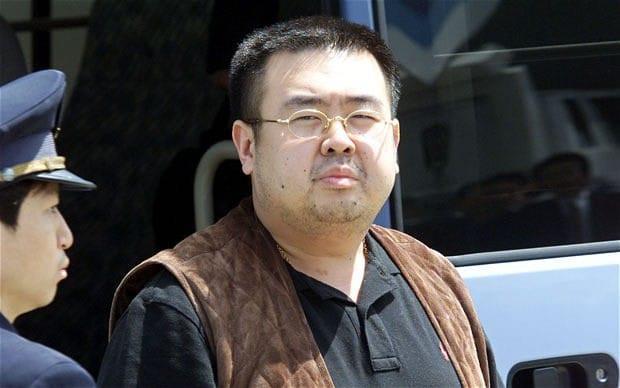
One month into the trial of the killing of North Korean leader Kim Jong Un's half-brother, Malaysian prosecutors have focused on two accused women, but have shed no light on four prime North Korean suspects.
Historically close ties between North Korea and Malaysia unravelled as the Southeast Asian country started investigating the alleged murder of Kim Jong Nam, who died after the two women smeared his face with VX, a banned chemical weapon, at Kuala
Lumpur airport on Feb. 13.
Malaysian police declared two women, Indonesian Siti Aisyah and Doan Thi Huong from Vietnam, and four men who fled to North
Korea, as prime suspects.
Police secured an Interpol alert for the four men, identified as North Koreans Ri Ji Hyon, Hong Song Hac, O Jong Gil, and Ri Jae Nam.
Their photos and passport details were widely distributed among media organisations.
But as the trial enters its fourth week, prosecutors have yet to name the four men or even confirm their North Korean
origin in court.
The case's lead police investigator, Wan Azirul Nizam Che Wan Aziz, has referred to the suspects only by their pseudonyms during the trial and said that authorities did not have enough information to trace and arrest them.
"Based on my investigation, the suspects used assumed names and there were no identifying details such as passport numbers or telephone numbers," Wan Azirul told the court.
Barely mentioned
Kim Jong Nam and his relationship with North Korea's leader has been barely mentioned throughout the trial.
Witnesses and lawyers alike refer to the victim as Kim Chol, according to the name on his North Korean passport.
Nor have prosecutors made any mention of what South Korean intelligence sources have described as a state-sponsored plot to kill Kim Jong Nam, who had been living in exile in Macau.
Both South Korean and U.S. officials say Kim Jong Un's regime were behind the killing, which Pyongyang vehemently denies.
"The question of who (the victim) is related to is only relevant when trying to determine the motive, but it's up to the prosecutors if they want to avoid having to prove a conspiracy involving the head of state of a foreign government," Shad Saleem Faruqi, a law professor at the Kuala Lumpur-based University of Malaya said.
"The broader you cast the net, the more difficult your job becomes," he added.
Malaysia and North Korea came close to snapping ties over the case until a swap deal was agreed upon on March 30.
Three North Koreans wanted for questioning over the killing were allowed to return home, along with Kim Jong Nam's body, while nine Malaysians barred from leaving Pyongyang were released.
'Grandpa' orchestrated it
Defence lawyers have said Siti Aisyah and Huong, who were arrested in Kuala Lumpur within days of the killing, were duped
into thinking they were playing a prank for a reality TV show and did not know they were poisoning Kim Jong Nam.
CCTV recordings screened in a court on the outskirts of Kuala Lumpur showed the four suspects, known only as Mr. Chang, Mr. Y, James and Hanamori, at the airport on the morning of the killing.
Hanamori, who went by the names of "Grandpa" and "Uncle" orchestrated the operation at the airport, Wan Azirul said.
Two of them were seen meeting Siti Aisyah and Huong before changing clothes and leaving the scene after Kim Jong Nam was
attacked.
Mr. Chang and Mr. Y had applied liquid on the women's hands, Wan Azirul said.
The trial resumes on Monday when more CCTV footage is expected to be shown. The defence team is expected to focus more on the four North Koreans, when the judge calls it to present its case.
The two women face a mandatory death sentence by hanging iffound guilty.